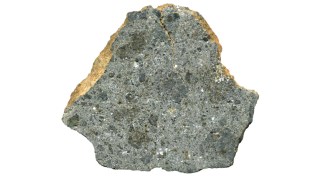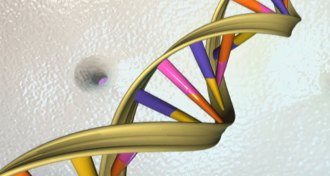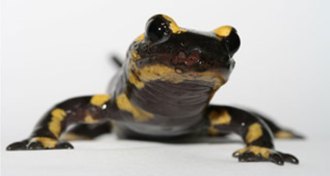All Stories
-
 Chemistry
ChemistryChemist tackles complex problems with simplicity
Harvard chemist George Whitesides applies his unique problem-solving philosophy to creating new diagnostic devices for the developing world.
By Sam Lemonick -
 Climate
ClimateMelting ice forces walrus detour
Warming temperatures and shrinking summer ice cover have forced the animals to seek solid ground during feeding season.
-
 Planetary Science
Planetary ScienceWater arrived on Earth earlier than thought
Ancient meteorites from the asteroid Vesta indicate that Earth’s water was available before planet formed.
-
 Psychology
PsychologyRip-off victims prefer compensation to retribution
But those acting on behalf of victims favor a punishment that fits the crime.
By Bruce Bower -
 Neuroscience
NeuroscienceA species of invention
From early humans painting on cave walls to modern-day engineers devising ways to help people move better, the drive to innovate is simply part of who humans are.
By Eva Emerson -

-
 Neuroscience
NeuroscienceAt-home brain stimulation gaining followers
People are building at-home electric brain stimulators in hopes of becoming better gamers, problem solvers, and even to beat back depression.
-
 Math
MathSpirals inspire walking aids for people with disabilities
Long admired for their beauty, spirals have inspired a shoe that may help disabled people walk. The shapes make for a better crutch and an entertaining skateboard as well.
-
 Paleontology
PaleontologySome trilobites sported dual digestive tracts
CT scans reveal trilobites with two-lane digestive tracts.
-
 Neuroscience
NeuroscienceStudy of psychiatric disorders is difficult in man and mouse
Studying human psychiatric disorders in animals presents a challenge. A new study highlights one of the ways scientists can study human mutations by slipping them into mice.
-
 Life
LifeClose look at new fungus reveals origins, spread of salamander killer
A second chytrid fungus described last year targets salamanders and may be spreading in the animal export trade.
By Susan Milius -
 Animals
AnimalsTen real-life Halloween horrors in the natural world
Vampires and witches are nothing compared to mind-controlling parasites, nose ticks and antibiotic-resistant superbugs.